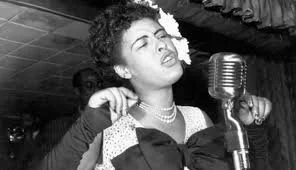Jazz in Crisis: The Hidden Financial and Mental Health Struggles of NYC Musicians Post-Pandemic
There are an estimated 50,000 musicians working in New York City, and about 33,000 of them are jazz-trained. How are professional jazz musicians faring financially and psychologically? Here is a brief review of the results from my 2021 survey of mental health and well-being of 111 full-time professional NYC jazz and improvising musicians, surveyed between June to September. Participants averaged an age of 45.6 years, gender identity reported was 56% male, 36% female, and 5% non-binary; and 72% white.
For more details and methodology, please visit my YouTube and Instagram channel @jazzpsychologist.
Read More
How does improvisation affect mental health? A review of psychological research literature
It is well known that the greatest jazz innovators historically suffered mood disorders such as dysthymic disorder, cyclothymic disorder, schizophrenia, mood disorders related to sickle cell anemia, and substance-induced psychotic disorder. In today’s economy, jazz musicians are no stranger to anxiety and depression. While practicing a music that is no longer mainstream, albeit satisfying, improvisers face an exhausting psychological task of securing musical work income within and outside of jazz to survive, subjecting themselves to social and identity discrimination in their own beloved communities and backyards. Here is an analysis of current research on health and wellbeing for musicians, indicating a need to further close the gap of current psychological research.
Read More
Performance, Transcendence and Consciousness: Comparing improvisation to academic research on improvisation
Research on the psychology of improvisation, as well as the ecological influence on jazz musicians, has developed from music perception and cognition fields. I find certain cognitive models of improvisation insightful, though often lacking in the psychological or ecological profiles of the jazz musician within hegemonic structures, nor the effect that improv has on autobiographical narrative, areas I hope to open up in conversation. Here, I review playing trio and quintet with Matt Jorgensen +451 at Egan’s in Seattle in terms of found scholarship on improvisation.
Read More
Enamiĝo Reciprokataj, a world where falling in love equals mutual breakdown...at the piano
Musings on my titled-in-Esperanto jazz piano trio album - yes, the third universal language (watch out, love and music). My Stravinsky-inspired album, Enamiĝo Reciprokataj, quickly translates to ‘reciprocal love’. Though, according to Google Translate it means ‘mutual breakdown’. (How very apropos of relationships, Google. One would think Ester Perel was behind you.)
Read More
Take Five with Brittany Anjou: on working with The Shaggs
Here is a fun interview I did this month about The Shaggs, the Dot Wiggin Band, and the process of making my piano suite and album, Enamiĝo Reciprokataj. Thanks to Patrick Boyle for interviewing me on Take Five! I am reposting his questions and my answers here from Take Five. Click here to read this interview from Patrick’s source page:
http://www.patrickboyle.ca/take-five/take-5-with-brittany-anjou/
Read More




